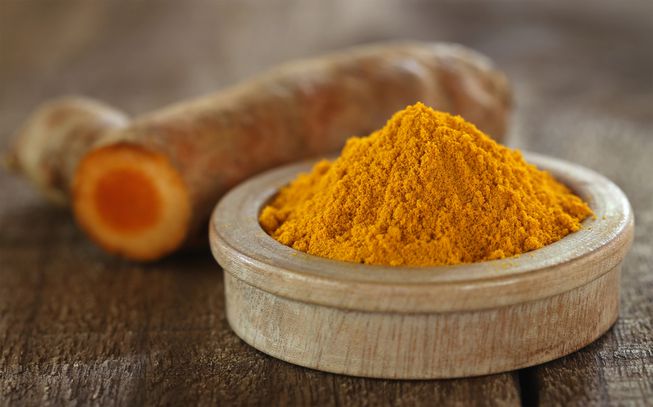
Tumeric: A Natural Anti-Inflammatory

Tumeric- A Natural Anti-Inflammatory
More than just your average cooking spice
A blog post by Cat Moore
Nowadays people are so quick to head straight to the medicine cabinet when something aches. We are so willing to stuff our bodies with chemicals without even acknowledging that there are natural alternatives out there. As someone who has suffered from arthritis for years, I would like to share with you one of my favorite natural alternatives for anti- inflammation, turmeric.
What is Tumeric?
Turmeric is a plant hailing from India, closely related to ginger. It is used in many traditional Indian dishes, and gives them a bold yellow color. However, turmeric has much greater health benefits than your traditional spice. Turmeric is rich in several vitamins and minerals such as vitamin C, calcium, iron, dietary fiber, vitamin B6, potassium, magnesium, and manganese.

Benefits of Tumeric
Turmeric, specifically curcumin, one of the compounds found within turmeric, has powerful anti-inflammatory and pain relieving properties. Curcumin does this by blocking certain enzymes in the body that cause joint inflammation and arthritis. In a study done by the Arthritis Foundation, turmeric was shown, not only to help reduce inflammation, but also to alter immune response, helping to block future inflammation from occurring.
Another benefit of turmeric is that it aids in digestion and digestive health. Studies have shown that taking turmeric regularly helps your stomach produce materials that line the stomach and protect it from irritants. Throughout the GI tract, turmeric has been shown to increase enzymes that break down fats and sugars.
Cognitive Function Benefits
One final benefit I would like to discuss deals with cognitive function. Alzheimer’s Disease is a neurodegenerative disease, most notably  characterized by cognitive degeneration. Nerve cells in the brain get degraded from various causes including oxidation, inflammation and the formation of harmful plaques. Turmeric aids certain cells called macrophages to more effectively eat up and clear out these harmful plaques that can cause Alzheimer’s. Turmeric also helps block nerve cell inflammation and the release of free radicals that can be harmful not only for your GI tract, but also for your brain. Similar effects can also be achieved by NSAIDs, such as ibuprofen, but prolonged use is harmful and potentially toxic for your kidneys, liver, and GI tract, which must constantly be running in overdrive to help process those chemicals.
characterized by cognitive degeneration. Nerve cells in the brain get degraded from various causes including oxidation, inflammation and the formation of harmful plaques. Turmeric aids certain cells called macrophages to more effectively eat up and clear out these harmful plaques that can cause Alzheimer’s. Turmeric also helps block nerve cell inflammation and the release of free radicals that can be harmful not only for your GI tract, but also for your brain. Similar effects can also be achieved by NSAIDs, such as ibuprofen, but prolonged use is harmful and potentially toxic for your kidneys, liver, and GI tract, which must constantly be running in overdrive to help process those chemicals.
** You should always speak with your doctor before adding a new supplement of any kind for proper dosing and instruction. Though turmeric has numerous benefits, if taken too often it can lead to an upset stomach and nausea, as well as overall GI irritation. **
In Conclusion
In sum, turmeric is a plant that has powerful health benefits, and the ones above are only the tip of the iceberg. It just goes to show that sometimes what’s cooked up in a factory has nothing on Mother Nature’s homemade remedies.
References:
https://www.sciencedirect.com/science/article/pii/S0024320505000950
http://repository.ias.ac.in/5196/1/306.pdf
https://www.organicfacts.net/health-benefits/herbs-and-spices/turmeric.html
https://www.ncbi.nlm.nih.gov/pmc/articles/PMC2781139/
https://www.medicalnewstoday.com/articles/318405.php




